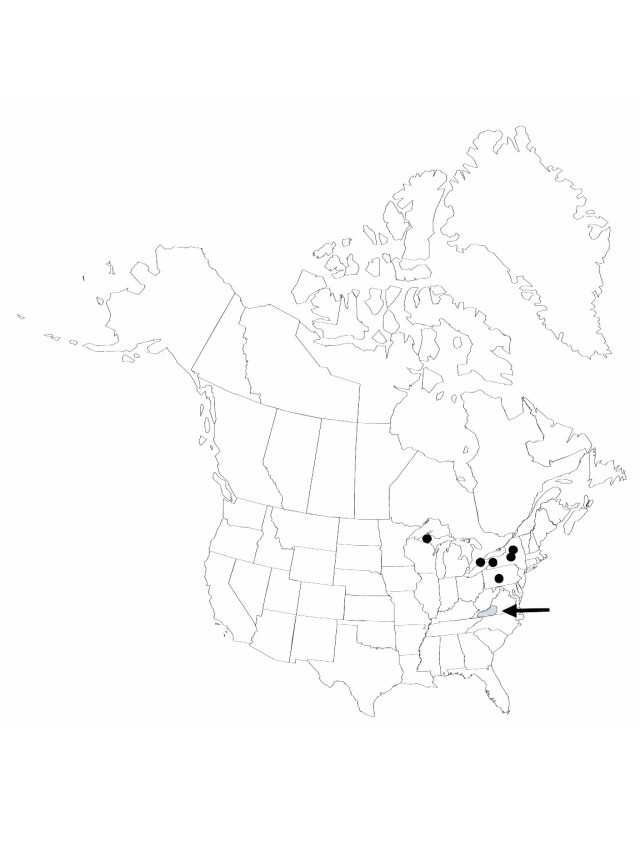Juncus inflexus
Sp. Pl. 1: 326. 1753.
Common names: Blue rush
Synonyms: Juncus glaucus Ehrhart ex Sibthorp
Treatment appears in FNA Volume 22.
Revision as of 19:59, 16 December 2019 by FNA>Volume Importer
Herbs, perennial, cespitose, stooling, 4–10 (–12) dm. Rhizomes 3–5 mm diam. Culms terete, 1.5–3 mm diam. Cataphylls several. Leaves: blade absent. Inflorescences many flowered, open, 2–7 cm; primary bract terete, 10–25 cm. Flowers pedicellate; bracteoles ovate; tepals straw-colored to reddish brown, lanceolate, 2.7–3.5 mm, margins scarious; inner series loosely subtending capsule at maturity, shorter; stamens 6, filaments 0.8–1.5 mm, anthers 0.8–1 mm; style 0.3 mm. Capsules reddish brown to chestnut brown, 3-locular, 3-gonous-ovoid to widely ellipsoid, 3–4 mm, exceeding perianth. Seeds amber, obovoid, 0.3–0.5 mm, not tailed. 2n = 20, 38, 40.
Phenology: Flowering and fruiting summer.
Habitat: Wet soils along streams, ditches, and on wet, sandy and peaty hillsides
Distribution

Ont., Mich., N.Y., Pa., Va., Europe, Asia, Africa.
Discussion
Selected References
None.
Lower Taxa
None.